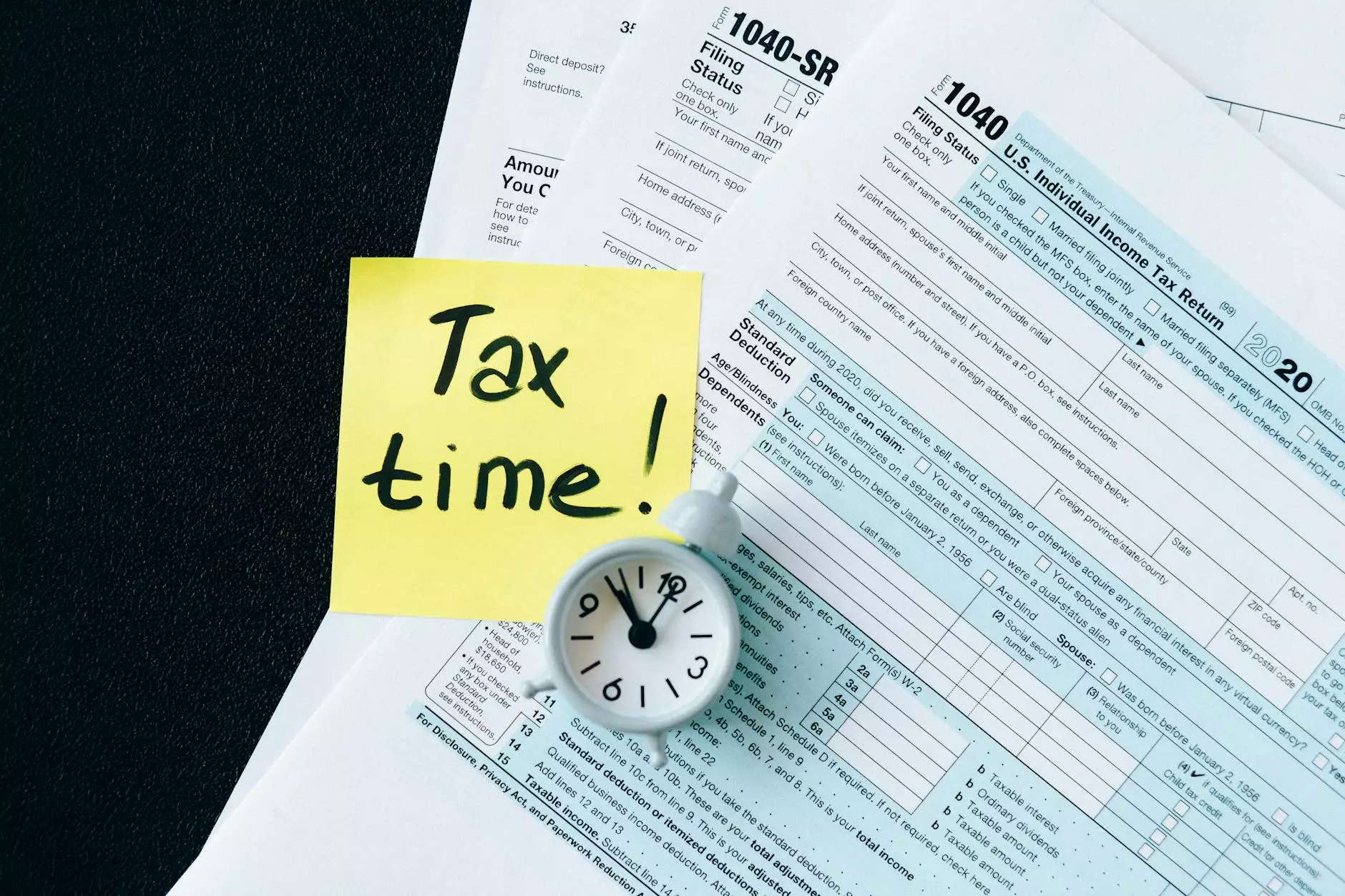Understanding the Importance of a Lawyer for Tax Problems

When it comes to managing your finances, dealing with tax issues can often feel daunting. Tax complications can arise from various sources, whether it’s a misunderstanding with the IRS, unpaid taxes, or even tax fraud accusations. In such scenarios, hiring a lawyer for tax problems can be your greatest safeguard. This article delves into the invaluable role that these legal professionals play, how they can assist individuals and businesses alike, and why their guidance is pivotal in achieving favorable outcomes.
Why You Need a Lawyer for Tax Problems
Taxation is a complex field. With laws frequently changing and regulations varying significantly between states and countries, understanding your rights and obligations can be overwhelming. Here are several reasons why enlisting a lawyer for tax problems is essential:
- Expertise in Tax Law: Tax lawyers have specialized training and knowledge that can help you understand intricate tax laws, exemptions, and credits.
- Negotiation Skills: They can negotiate with the IRS on your behalf, which can lead to reduced penalties or more favorable settlement terms.
- Representation in Court: If your tax issues escalate to litigation, a lawyer can represent you in court, presenting your case effectively.
- Protection of Rights: A tax lawyer ensures your rights are protected throughout the process and helps you avoid any potential traps.
- Reducing Stress: Handling tax issues can be stressful. Having a professional who knows the system can alleviate burdens and anxiety.
Common Tax Problems Addressed by Lawyers
The realm of tax law encompasses a variety of issues. A competent lawyer for tax problems can assist with numerous cases, including:
1. Unfiled Tax Returns
If you have failed to file your tax returns, a lawyer can help you navigate the consequences. They can aid in preparing back taxes and negotiating for reduced penalties with the IRS.
2. Tax Audits
Being audited can be terrifying. A tax attorney will explain the audit process, represent you in communications with the IRS, and ensure that all your rights are honored during the audit.
3. Tax Liens and Levies
If the IRS has placed a lien or levy on your property, a tax lawyer can work to remove these burdens. They will negotiate with the IRS and can often implement a strategy to settle your tax debt.
4. Payment Plans and Offers in Compromise
Negotiating a payment plan or an Offer in Compromise to settle your tax debts for less than you owe requires seasoned legal knowledge. A tax attorney can ascertain your eligibility for these options.
The Process of Hiring a Lawyer for Tax Problems
Identifying when to hire a lawyer for tax problems is crucial. Here are essential steps to follow when seeking legal help:
1. Assess Your Situation
Before seeking legal representation, evaluate your circumstances. Do you owe back taxes? Are you being audited? Understanding your issues will help narrow down the type of legal assistance you need.
2. Research Potential Tax Lawyers
Look for a lawyer who specializes in tax law and has a solid track record in resolving issues similar to yours. Reading reviews, asking for referrals, and checking their credentials can provide insight into their expertise.
3. Schedule Consultations
Many tax lawyers offer free initial consultations. Use these meetings to discuss your situation and gauge whether their approach fits your needs.
4. Discuss Fees
Understanding the lawyer's fee structure is fundamental. They may charge hourly rates, flat fees, or contingency fees. Ensure you are clear about all costs before signing on.
Benefits of Hiring a Lawyer for Tax Problems
Engaging a lawyer for tax problems comes with numerous advantages, including:
- Better Outcomes: Professionals are more likely to achieve favorable resolutions than individuals attempting to navigate tax matters alone.
- Time-Saving: They handle all communications and paperwork, saving you precious time.
- Personalized Strategy: A skilled lawyer will tailor strategies to address your unique situation, optimizing your chances for success.
- Long-Term Planning: Beyond immediate issues, a tax attorney can also advise on future tax planning, ensuring you remain compliant.
Understanding Tax Laws: Key Concepts
To benefit fully from the expertise of a lawyer for tax problems, it’s worth familiarizing yourself with some essential tax concepts:
1. Tax Liabilities
This refers to the amount of tax an individual or entity owes to the government. Understanding this concept is crucial for assessing your tax situation.
2. Deductions and Credits
Deductions reduce your taxable income while credits directly reduce the amount of tax due. A knowledgeable lawyer can help you identify eligible deductions and credits.
3. Filing Status
Your filing status impacts your tax rate and eligibility for certain deductions. It’s determined by factors like marital status and family situation.
4. Income Types
Taxable income may come from various sources, including wages, dividends, and interests. A lawyer can help you categorize your income and ensure accurate reporting.
Frequently Asked Questions About Tax Lawyers
Many individuals have similar queries regarding the services of a lawyer for tax problems. Here are some commonly asked questions:
1. How much does a tax lawyer cost?
Fees vary based on experience and the complexity of your case. However, investing in a tax lawyer can save you significantly more in potential penalties and interest.
2. How long does it take to resolve tax issues?
The resolution time can vary. Simple issues might be addressed quickly, while complex matters can take months or even years.
3. Do I need a lawyer if I have a small tax issue?
Even small tax issues can escalate if not handled properly. A consultation can provide peace of mind and prevent future problems.
4. What if I’ve received a notice from the IRS?
It’s crucial to address IRS notices promptly. A lawyer can help you understand the context of the notice and how to respond appropriately.
Finding the Right Lawyer for Tax Problems
When it comes to securing the right legal counsel, consider these tips:
- Look for Specialization: Ensure the lawyer specializes in tax law, as this field requires specific knowledge that general lawyers may not possess.
- Check Credentials: Verify their education, certifications, and bar status to confirm they are qualified to practice in your area.
- Request Referrals: Ask trusted friends, family, or business associates for recommendations, as personal experiences can guide you to reputable lawyers.
- Review Case History: Inquire about past cases similar to yours to gauge their success rates and understanding of similar tax issues.
Conclusion
Addressing tax problems can be a daunting endeavor, but the right lawyer for tax problems can make a significant difference in the outcome. Their specialized knowledge, negotiation skills, and experience allow you to navigate seemingly insurmountable tax challenges effectively. If you're facing any form of tax issue, don’t hesitate to reach out for professional assistance.
At kesikli.com, we provide insights and resources tailored to navigating the intricacies of taxation. By leveraging expert legal advice, individuals and businesses can not only resolve immediate tax problems but also formulate long-term strategies for compliance and financial success. Invest in the future of your financial health today.









